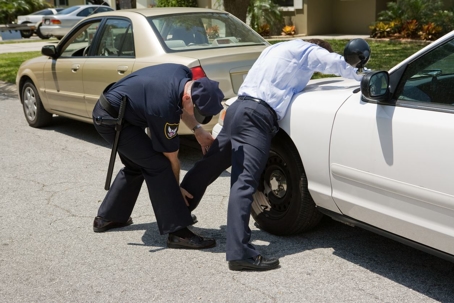You hear stories all of the time about how someone may be going about their business, when suddenly law enforcement randomly stops and searches them — what lawyers refer to as a stop and frisk. Many stops tend to be illegal because for them to be legal, an officer must meet several criteria.
As a general rule, police officers may briefly stop someone for investigatory purposes, but for them to do so, they must have a reasonable suspicion, “grounded in specific and articulable acts” that allows the officer to conclude that the person is wanted in connection with criminal behavior. So how can an officer have reasonable suspicion? Usually, an officer gets reasonable suspicion from either personally observing the person or from an informant’s tip. When an officer gets information from an informant, the officer must establish some reliability of the informant’s information, such as conducting an independent investigation of the informant’s information.
But what happens when an officer conducts a stop? Can they randomly search a person or arrest them? The short answer is typically no. If the officer is going to conduct a stop and a brief search of a person, the scope of the stop and search must relate to the initial circumstances that led to the search.
Let’s look at a few examples. Let’s say that Mike is walking down the street. While he’s walking, an officer approaches him. The officer tells Mike that he received a report that someone broke into a nearby residence and stole a watch. The officer pats Mike down. He does not feel a weapon during the pat-down but does feel something shaped like a watch. The officer then reaches into Mike’s pocket, grabs the watch, and arrests Mike. Is the stop and frisk legal? Likely not. The stop itself is likely not legal because the officer did not personally observe anything suspicious, nor had he received an informant’s tip. Additionally, the officer had no reason to search Mike, given that there was no basis to suspect that Mike had done anything illegal.
Let’s change the facts. What if the officer saw that Mike was acting suspiciously nervous, asked Mike to submit to a search and Mike ran? After chasing Mike down, the officer arrested Mike, then searched him and found the watch. Was the stop, arrest, and search legal? The stop itself may have been legal, given that the officer personally observed Mike acting suspiciously nervous, but what came afterward was more than likely illegal. This was the exact scenario in a Mississippi case, Carr v. State, back in 2000. The Mississippi Supreme Court determined that in such situations, while fleeing or not complying may have triggered some additional investigation work on the officer’s part, being in the area or fleeing did not automatically give rise to an arrest and search.
This leads to the next question: if the stop or search were illegal, what can be done? The evidence should not come in, and instead should be suppressed. If the evidence is ultimately suppressed, then the chances of the case being dismissed, or not pursued, goes up exponentially. Whether a stop and frisk is or is not legal is always going to depend on the facts and circumstances surrounding what the officers believed and what the person was doing at the time of the stop. Certain factors, like whether there were reports of criminal activity nearby, whether a person was acting suspiciously, whether a person ran, or even if the officer had prior interactions with the person can be taken into account.
